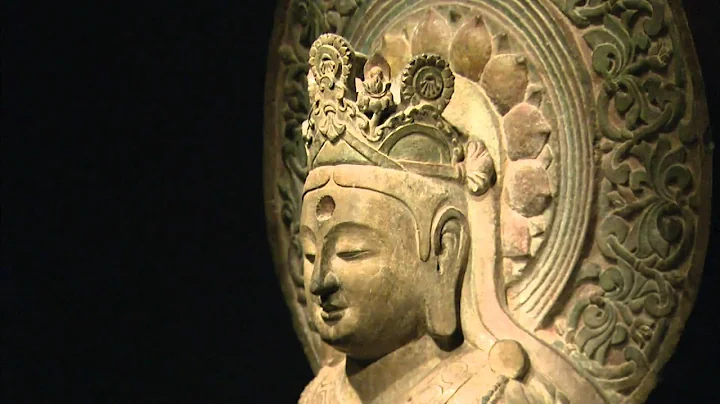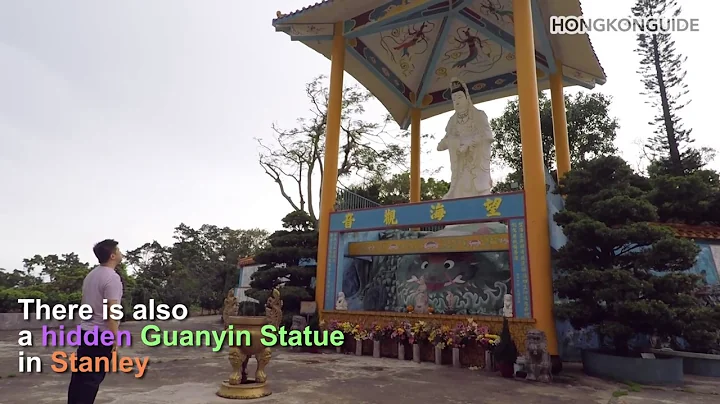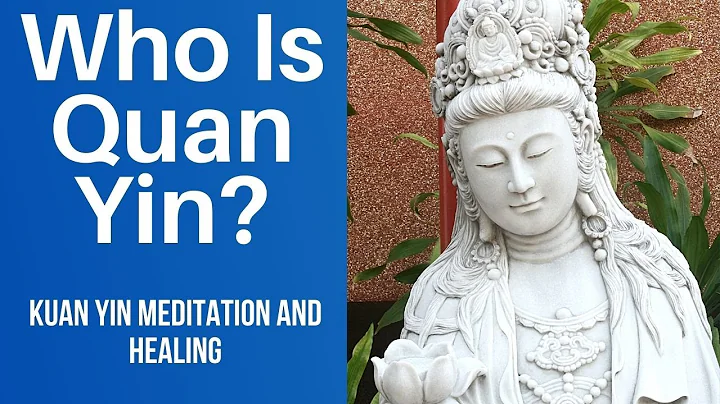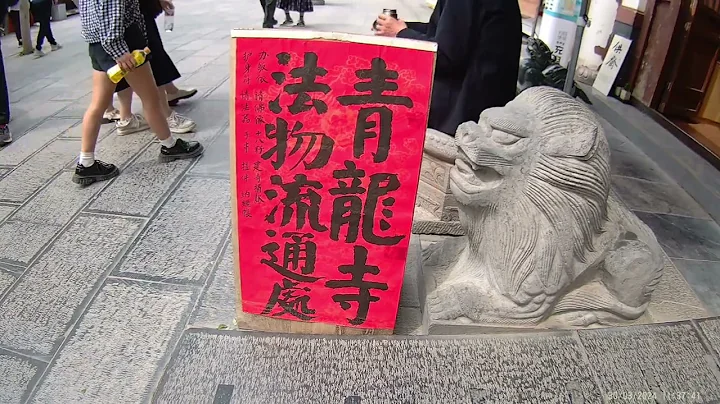
Zhongnanshan Guanyin Temple (not the Guanyin Temple in the book)
Guanyin Temple, the poem says:
layers of palaces and pavilions, stacks of corridors.
( Xiake : What a big temple. Jinchi has probably been engaged in real estate for more than two hundred years.)
Outside Sanshan Gate, thousands of colorful clouds cover the sky; in front of Wufu Hall, thousands of bright red mist surrounds.
(Xiake: It does look like a Zen monastery with cultivation, but what is the actual situation?)
There are two roads of pine trees and a forest of junipers and cypresses.
There are two roads of pine and bamboo trees, which are quiet and quiet all year round; a forest of junipers and cypresses, with their colors and colors, are proud and beautiful.
(Xiake: The standard configuration of the Zen courtyard, bamboo and pine. Bamboo, is quiet and quiet all year round; pine, noble and proud, unyielding. )
See the high bell and drum towers, the pagoda ( Sanskrit Transliteration) Tajun.
(Xiake: "Zengguang Xianwen" As the saying goes: "Saving a life is better than building a seven-level pagoda". Pagoda: Buddhist architectural form, that is, the so-called pagoda, Sanskrit: "studded slope" , also known as pagoda. This kind of building was originally used to enshrine Buddha bones , and was later used to enshrine Buddha statues and collect scriptures. It is better than building a seven-level pagoda to encourage people to do good deeds. Or beg people for help. )
The Zen monk is determined, and the sound of singing trees and birds is leisurely.
(Xiake: Although the sound of birds is idle, the monks are not sure yet.)
Loneliness and dustlessness are truly lonely, pure and empty, with the Tao and fruit of pure and empty.
(Xiake: If you want to calm down your mind, then you need to try to accept loneliness and loneliness. )

Elder Jinchi stills
[Location] Guanyin Temple
[Location] is far from Xiaobailong's The journey to Yingchou Stream in Snake Pan Mountain takes about two months
[Master] Elder Jinchi
[Related Stories] After Monkey and Tripitaka masters and disciples subdued the little white dragon, they traveled westward for more than two months and passed by Guanyin Temple. He likes to show off, but can't stand the ridicule of the monks, so he shows off his brocade cassock. As a result, he is coveted by the elder Jinchi. He wants to set fire to the two of them at night, plotting the cassock, but is discovered by Sun Wukong and burns his own Guanyin. In the Zen courtyard, the black bear monster took advantage of the chaos and swept away the cassock. Elder Jinchi " was at a loss for ideas and had no way to advance or retreat. He pulled away, bent his waist, and really hit his head against the wall. Unfortunately, he only suffered a brain injury and bleeding. His soul was scattered, his throat was stained with red sand! ”
The monks in Guanyin Temple are rich, crazy, greedy and poisonous, but the presiding elder Jinchi can practice to more than 270 years old without dying. It is estimated that this practice is It went astray, so Guanyin may have borrowed the help of the traveler to clean up the door, and by the way, also made some contribution to the catastrophe of 9981.

Monkey King Sun Wukong stills
Wukong was originally a person who liked to show off. Because he showed off, he was kicked out by Bodhi Patriarch Fang Cun Mountain . This time, he almost caused a big disaster because of showing off. In Buddhism, there is a "madness pause" ", rest is Bodhi", only by putting away your arrogance and not showing off can you understand your heart and see your true nature. After the incident at Guanyin Temple, Wukong really restrained himself a lot in this regard, and Lao Yuan's practice has advanced to a new level.
[About the author]
Wu Chengen (about 1500-1582), also known as Ruzhong, also known as Sheyang Jushi, was a native of Hexia (now Huaian, Jiangsu), Shanyang County, Huai'an Prefecture, South Zhili Tongcheng, Anhui), his ancestral home is Andong. writer of the Ming Dynasty. Wu Chengen

















![[English] Who Am I - Lecture 1 - Ven. Guan Cheng - DayDayNews](https://i.ytimg.com/vi/KU0fUs2It5o/hq720.jpg?sqp=-oaymwEcCNAFEJQDSFXyq4qpAw4IARUAAIhCGAFwAcABBg==&rs=AOn4CLDFpQUN_QwRfC7bmP4sUadq-RcYdg)
![A Moving Masterpiece 清明上河图 [English narration] - DayDayNews](https://i.ytimg.com/vi/kxff-4GktOI/hqdefault.jpg?sqp=-oaymwEcCOADEI4CSFXyq4qpAw4IARUAAIhCGAFwAcABBg==&rs=AOn4CLBtHGLeUpJNCYDJYnZTuISQ1N5Vag)


